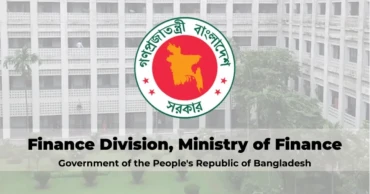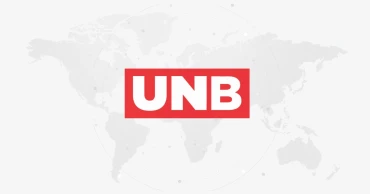8th Five Year Plan
Amid lower govt spending relative to GDP, Bangladesh plans increased investment to stimulate pvt sector
Bangladesh's Finance Ministry is tackling what it identifies as one of its most formidable challenges: significantly amplifying public expenditure to catalyse sustained growth within the private sector.
An official document from the ministry underscores that, in comparison to other economies, Bangladesh's government spending as a percentage of GDP markedly trails, thereby emphasising the urgency to augment investment.
Data from the World Economic Forum and the IMF (as of April 2023), reveal Bangladesh's public expenditure at 13.1% of its GDP, a figure that stands in stark contrast to countries like France at 58.5%, Sweden at 46.8%, and even neighbouring India at 28.8%. This discrepancy highlights the room for growth in Bangladesh's fiscal strategy.
The government, aiming to elevate GDP growth and living standards, views the expansion of its expenditure as crucial. This ambition is supported by the progressive implementation of reforms in Public Financial Management. Historically, the government has gradually increased its spending relative to GDP, signaling a positive trajectory.
Interest rate for April set at 13.55%, for consumer loans add 1%
Outlined in the 'Medium Term Macroeconomic Policy Statement (2023-24 to 2025-26)' from the Finance Division, the government's medium-term strategy is geared towards securing inclusive and high growth. This strategy is aligned with Bangladesh's Vision 2041, the 8th Five Year Plan, and the Sustainable Development Goals (SDGs), focusing on priority sectors including infrastructure, industrial production, food security, job creation, healthcare, and education among others.
In anticipation of the demands of the Fourth Industrial Revolution (4IR), significant allocations have been dedicated to human resource development, particularly in education and skills training. The fiscal projections set public expenditure targets at 15.2% for the 2023-24 fiscal year, 15.4% for 2024-25, and 16.2% for 2025-26.
The document further highlights Bangladesh's progression to a lower-middle-income country, with aspirations to attain upper-middle-income status by 2031. This ambition aligns with the developmental targets set within the 8th Five Year Plan and reflects the government's commitment to resuming the rapid economic growth witnessed pre-COVID-19 and pre-Russia-Ukraine war.
Banks to remain open on April 5, 6, and 7 for payment of garment workers’ salary, bonus
In response to the COVID-19 pandemic, the government prioritised life and livelihood protection, adopting an expansionary fiscal policy and channeling additional funds into critical sectors.
Despite the global political and economic instability, these measures have begun to show promise, with expectations of returning to pre-pandemic growth levels and policies aimed at promoting pro-poor and inclusive growth.
As Bangladesh looks forward, the Finance Ministry is set on formulating strategies to enhance pro-poor growth, stimulate both domestic and international private investment, bolster public investment, curb inflation, generate employment, and alleviate the balance of payment pressures. These objectives underscore a holistic approach to not only recovering from recent global challenges but also setting a solid foundation for long-term, sustainable development.
1 year ago
Bad things happen when life goes well, warns Hasina
Prime Minister Sheikh Hasina on Tuesday called upon all to remain alert as bad things happen when people lead a good life and the country moves towards prosperity.
"I would like to alert you…one thing you might’ve noticed that the possibility of being attacked emerges when the life goes well in Bangladesh, when the people start dreaming of a good life and when the lifestyle improves. So, all will have to remain alert," she said.
5 years ago
‘Bangladesh to become developing country by 2024 despite Covid-19 fallout’
Bangladesh will become a developing country within 2024 despite the challenges unfolded by the Covid-19 crisis.
5 years ago


.jpg)

